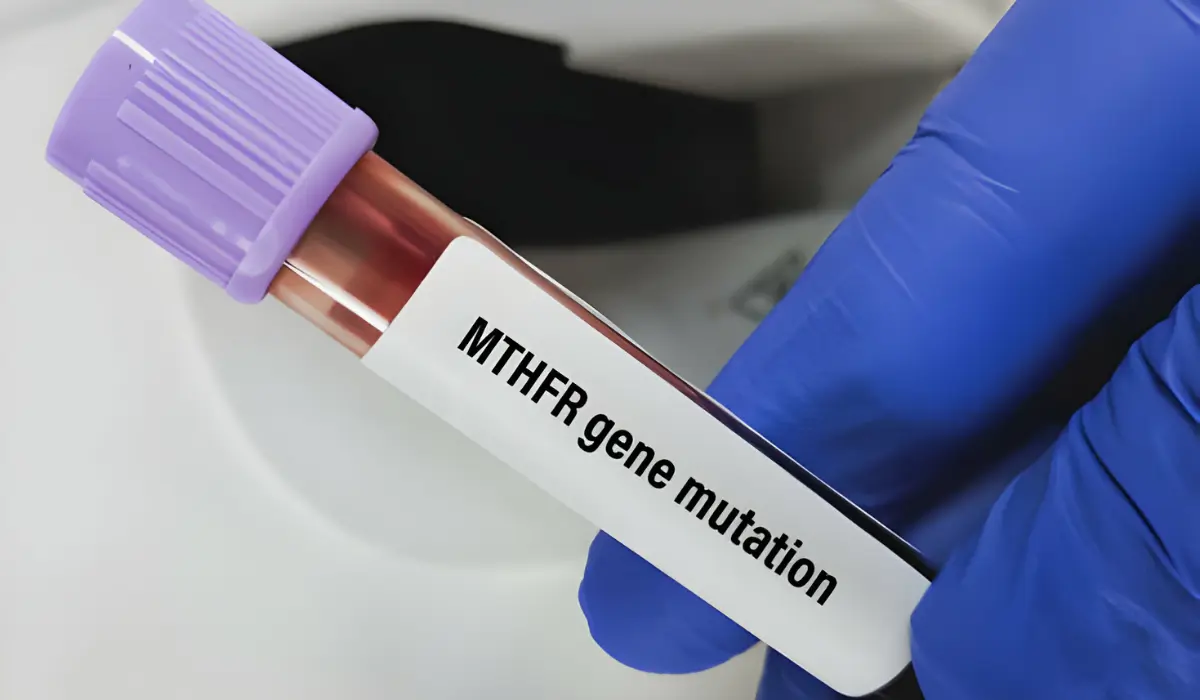As a parent, you want to ensure your children are as healthy as can be. However, there may be underlying genetic factors like MTHF gene mutation impacting their well-being that you aren’t aware of. One common genetic mutation that can cause various symptoms in children is an MTHFR mutation.
MTHFR stands for methylenetetrahydrofolate reductase. This enzyme plays a vital role in processing folate and folic acid. When there is a mutation in the MTHFR gene, it can disrupt your body’s methylation process. Methylation is crucial for things like neurotransmitter production, detoxification, gene regulation, and more.
If your child is exhibiting any number of symptoms, from chronic fatigue to developmental delays, it could potentially be linked to an MTHFR mutation. Getting them tested with a genetic methylation test at home can provide vital insights into mitigating symptoms and improving their health. In this article, we’ll explore what to look for when it comes to MTHFR symptoms in children and how you can support your child if they do test positive for a mutation.
What is an MTHFR Mutation?

An MTHFR mutation refers to a change or variation in the MTHFR gene that can impact its ability to properly synthesize folate and folic acid. Essentially, it makes it more difficult for the body to convert these vitamins into their active form which is required for vital methylation reactions. About 50% of the population has an MTHFR mutation but many people can go undiagnosed.
If your child tests positive for one, it doesn’t automatically mean they will face health issues. However, they may have impaired methylation which could contribute to potential symptoms. There are two main MTHFR variants – C677T and A1298C. Let’s explore how these can impact kids.
MTHFR Deficiency Symptoms in Children
There is a wide spectrum when it comes to potential symptoms associated with an MTHFR mutation. Every child is different in terms of how much it affects them based on lifestyle factors, specific genetics, environmental toxins, and more. However, here are some key symptoms that may indicate an underlying MTHFR mutation:
- Chronic fatigue
- Developmental delays
- Poor concentration and focus
- Anxiety or depression
- Headaches or migraines
- Gastrointestinal issues like constipation, diarrhea, or reflux
- Low muscle tone
- Eczema or skin rashes
- Asthma or respiratory issues
- High Homocysteine levels
- Sensory processing disorders
Many of these symptoms can also simply be chalked up to other common childhood issues. This makes it tricky to connect the dots back to a potential MTHFR mutation. Genetic testing is the best way to determine for sure if your child has an underlying mutation that could be contributing to symptoms.
How to Test for MTHFR Mutations at Home?
If your child is demonstrating any symptoms associated with impaired methylation and MTHFR mutations, at-home genetic testing kits provide an easy and affordable option to screen them for variants. Two main options include:
- 23andMe: This popular DNA testing provides ancestry data and information on health risks and carrier status for conditions. Within the health reports, it will specify which MTHFR variants your child has if any. One limitation is it only tests for 2 main mutations so lacks thoroughness.
- Imprint/Profile by Genova: This comprehensive methylation analysis panel analyzes 16 key gene variants related to the methylation cycle and folate metabolism including MTHFR. The benefit of this test is the insight it provides into overall methylation function rather than just the MTHFR gene.
Many functional medicine doctors now offer at-home testing kits for services like Genova so you can order directly without needing an appointment. If genetic testing confirms an MTHFR mutation, this then provides guidance when it comes to tailored treatment and lifestyle approaches to manage symptoms and support health.
How to Treat an MTHFR Mutation Naturally?
If testing does confirm your child has an MTHFR mutation, the good news is there are actionable, natural steps you can take to potentially help lower symptoms and risk factors. So how do you treat MTHFR naturally? Here are some effective, evidence-based approaches:
- Focus on Diet: Provide nutrient-dense meals high in folate from real foods like leafy greens, nuts, and beans. Limit processed items with synthetic folic acid. Eliminate gluten and dairy if sensitivity is an issue contributing to symptoms.
- Prioritize Gut Health: Aid healthy gut flora with fermented foods or kid-friendly probiotic supplements since an impairment of the GI system can trigger immune reactions.
- Optimize Nutrients: Supplementation with bioavailable methylated folate, B vitamins, omega 3’s, vitamin D and other nutrients critical to methylation may provide additional support.
- Reduce Toxins: Limit exposure to environmental toxins whenever possible and aid detoxification pathways through sweating, supporting glutathione production and ensuring proper elimination.
- Consider Lifestyle Changes: Factors like quality sleep, regular physical activity, stress reduction techniques, and tuning into genetic uniqueness all play a role.
The right combination of dietary changes, strategic supplementation, and lifestyle interventions can potentially make a big difference in managing mutation-related symptoms. Working with a functional medicine doctor knowledgeable in MTHFR is ideal for customizing an approach.
Conclusion
Unexplained symptoms ranging from neurological to digestive can be frustrating to witness your child deal with. However, emerging research continues to demonstrate the significant impact gene mutations like MTHFR can have. When this vital enzyme is impaired, it causes a ripple effect that disrupts vital methylation processes and metabolic function.
Testing for MTHFR variants through easy-to-use home kits gives you answers while allowing you to pursue targeted, natural treatments. Actionable steps like dietary changes, select supplements, and lifestyle measures may alleviate mutation-related symptoms. While managing health conditions can be complicated, identifying root causes through proper testing gives you clarity while allowing you to feel empowered in supporting your child’s wellbeing.
Now that you have a better understanding of how MTHFR mutations can impact kids, do you have plans to get your child tested or implement any supportive strategies? Determining the underlying reason for suboptimal health is the first step to unlocking targeted solutions.

